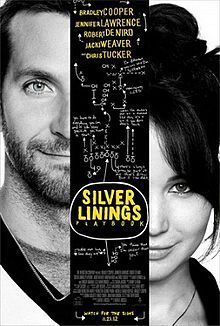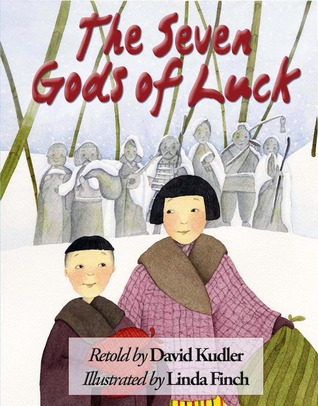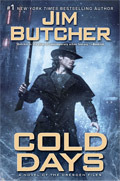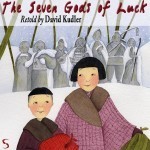David Kudler's Blog, page 23
January 22, 2013
The Sound and the Fury: Audiobook Fun
I’ve just finished one of the more enjoyable projects I’ve worked on in a long time — creating an audiobook for Janet Morris’s A Man and His God. Handling the narration, the recording, and all of the post-production, that was fun. But getting to do all of that with a novella that I’d loved when it first came out as part of Robert Asprin’s Thieves’ World shared-universe fantasy series and then launched Morris’s own Sacred Band of Stepsons series? That was a blast!
A Man and His God centers around Tempus, a mercenary cursed with what may or may not be immortality, as he does his best to serve his employer (Prince Kadakaithis, governor of the backwater known as Sanctuary), his conscience, and his god Vashanka, deity of storms, kingship, and war. Being who he is, Tempus manages to find chaos wherever he goes. As he tries to keep the prince in check and still to follow his own agenda, however, he finds that something has followed him: Abarsis, a young warrior-priest who knew Tempus when Abarsis was young.
There’s a large cast of characters — a wonderful legacy of the Thieves’ World books — and much uproar ensues, including what was, evidently, the first kiss shared by two men in fantasy/science fiction literature.
It was a blast getting to wade into all of that and bring it to life! Finding character voices is one of my favorite things to do, and this gave me the opportunity in spades. Here’s a fun conversation where Abarsis comes to greet Kadakaithis and Tempus (whom Abarsis teasingly calls ‘Riddler’):
Download: Abarsis_Tempus_and_Kadakaithis.mp3
Greetings, Riddler! (Abarsis, Tempus, and Kadakaithis)
Fun. 
And this being fantasy, featuring a mercenary no less, there has to be a battle. A Man and his God features a doozy: an assault by Tempus and his men on the compound of the slave trader and all-around nasty Jubal:
Download: A-Man-and-His-God-Preview-v2.mp3
The Attack on Jubal’s
I remember feeling breathless reading that sequence when I first across it, way too many years ago.
The audiobook should be up on Audible, iTunes, and Amazon soon. I’ll let you know when it’s available!
January 19, 2013
Inauguration Weekend: Ritual and Renewal

The Lincoln Memorial
Here’s a thought that first occurred to me on the third weekend of January four years ago, and that feels all the truer to me now:
I love that presidential inaugurations now take place the day after MLK Day. Not only does it make for a lovely four-day weekend for some schools, but we have created a secular ritual of loss and rebirth that satisfies my mythically-oriented but ultimately agnostic soul.
Think about it: every third Monday of January, we here in the US celebrate the life of man who called to the better angels of our nature, and who died in the struggle to get our nation to live out its creed—that all men are created equal. Every Martin Luther King Day, I listen to King’s speeches—the “I have a dream” behemoth, the “I have seen the Promised Land; I may not get there with you” Pisgah sight—and they fill me with both great hope and a great sense of loss. I cry. Every damned time. It’s pathetic. Only it’s not.
Then, every fourth year, on the third Tuesday in January, we indulge in the audacity of our on-going revolution, an exercise that embraces the idea that not only are we all one nation together (whatever our differences), but that we can, will, and do work continuously to make ours a more perfect union.
But what this pair of secular holidays has created is a rite of renewal.
Joseph Campbell said that a ritual is a myth present in such a form that the celebrant lives the story. The celebrant is the hero on her/his own journey. And, as any good Hollywood producer could tell you these days, the apex of any good hero tale is a moment of death—either literal or figurative—followed by a moment of rebirth—physical or spiritual.
It works for Good Friday and Easter. It works for Samhain (that’s Halloween and All Hallows to the non-pagan among us). It works for Yom Kippur. It works for Ramadan.
And now it works for MLK Day—a day of hope lost—and Inauguration Day—a day of hope fulfilled.
Mind, there are inaugurals that fill me, personally, with more hope than others…. But on this third Tuesday of January, I will indeed be filled with hope: hope, not in perfection but in perfectability; hope in the ability of our nation and our world to learn from our mistakes and turn from our excesses.
So. Happy Martin Luther King Day. Happy Inauguration Day. Enjoy the Renewal.

January 10, 2013
The Next Big Thing Blog Hop

Risuko
Ken Schneyer tagged me for this meme in his own post last week.
I’m a bit late posting this… Been madly finishing work on an audiobook and trying to care for my very flu-felled wife. But here’s my response!
What is the title of your book?
Risuko. That’s Japanese for “Squirrel,” which is the protagonist’s nickname.
Where did the idea come from for the book?
A couple of places:
First of all, I read an article about a war widow in sixteenth-century Japan who set up a school (of sorts) that trained young girls to be kunoichi (female assassins, spies and bodyguards), all under the guise of being shrine maidens (miko) — something like the Shintō equivalent of novice nuns.[†] I’d always been fascinated with the Japanese Sengoku (civil war era), so when I read that, I thought, Wow! There’s a story someone should write! A while later, I had an image of a girl climbing a tree… and realized that someone should be me.
The other thing that got this started was reading the Harry Potter books with my kids, loving them, and thinking, Now, what about these has to be fantasy? As I’ve been writing Risuko, my intent has been to write a story that feels like a fantasy — but isn’t.
What genre does your book fall under?
Many. It’s a young adult historical adventure novel. That’s three right there, right? It’s also a coming-of-age story, as well as being a variation on the boarding-school genre. Maybe I’ll get pirates in there somewhere. And kunoichi are sort of like ninjas. Only not.
Which actors would you choose to play your characters in a movie rendition?
Heh. Well, if we’re going to indulge in that fantasy, I’d want it to be an anime directed by Hayao Miyazaki. For voices… Hmm. Elle Fanning as Risuko, maybe? With Joel Courtney, her Super Eight astmate, as Aimaru. Not sure about Emi, Risuko’s glum best friend — maybe her sister Dakota. But I think it would be more fun to have her as Toumi, the girl Risuko loves to hate….
For the adults, not so sure. Michelle Yeoh has the right voice for Mieko, but the accent probably wouldn’t work. (If you’re going to have everyone –except the cook — be from the same country, you can’t have random accents showing up. Also, wrong accent. Ms. Yeoh’s from Hong Kong.) Someone older with a smoky, badass voice for Lady Chiyome, who runs the “school.” Judy Dench or Maggie Smith? Or Meryl Streep. She can do anything.
And Billy Connolly would be perfect for the Korean cook, Kee Sun. 
What is the one-sentence synopsis of your book?
Risuko is a young orphan who just likes to climb, but finds herself swept up in a plot that may lead to Japan’s unification — or its destruction.
Will your book be self-published or represented by an agency?
It’s already represented by the wonderful Danielle Svetcov of Levin | Greenberg (dsvetcov@levingreenberg.com), who is carrot-and-sticking me through another round of rewrites.
How long did it take you to write the first draft of your manuscript?
Interesting question. I wrote the first chapter, then did whole bunch of historical research — it’s one thing to have an interest in a period and quite another to write a historical novel set in that period. After a couple of months, I felt as if I had a pretty good sense of what I needed to know for the purposes of my story. (It was tough, however, finding accurate information about the daily lives of people in sixteenth century Japan; huge battles, sure, but not what they ate!) I threw together a pretty sketchy outline of the story and began plowing away at the opening chapters.
Then, about twenty chapters in, I hit a wall.
I knew where I wanted the story to go, but couldn’t see exactly how to get Risuko and Co. there. I put the book aside for a bit. Then I got involved in a huge editing project, and suddenly four years had passed since I had looked at the manuscript. Four years! I opened the file, looked at the outline, and realized two things: first of all, my outline was actually for a three- or perhaps four-novel series, and second, I finally knew how to get Risuko back to where she needed to be. I started work again, got bogged down… But Brenda and Donal Brown, friends to whom I’d given the opening chapters, kept asking me to how it turned out. Asking very persistently. I offered to give them the outline, but no — they would only be satisfied with a finished draft. Well, then, a finished draft I would give them!
I finally completed the first draft of Risuko two years ago — nearly eight years after I read that article that sparked the idea. I began the process of revision, and in the mean time the Browns (who deserve some sort of medal for this among a million other acts) passed the manuscript along to a neighbor, Danielle Svetcov, who happened to be a literary agent. She signed the book that summer, and I’ve been revising ever since. Rewrote the opening chapter a half a dozen times, eliminated a number of secondary characters who didn’t add anything, cut the first third of the book in half — and then added a new subplot in. I’m almost there. I think. Whew!
What other books would you compare this story to within your genre?
Not many that I can think of. The Kite Runner comes to mind (sort of) as a young girl’s descent into adult madness, as well as Linda Sue Parks’s books A Single Shard and The Kite Fighters — they’re both aimed a bit younger, but do a wonderful job of capturing a distant time and place while making them feel very immediate.
Who or What inspired you to write these books?
As I said, that article about the historical Lady Mochizuki Chiyome was the initial inspiration, as well as the Harry Potter books — and the wealth of wonderful middle-reader and young adult adventures that I read along with my daughters. Tamara Pierce’s Song of the Warrior books, for example.
I will say, too, that watching Kurosawa films with my dad as a kid certainly had an impact, as did the characters played by Michelle Yeoh and Ziyi Zhang in Crouching Tiger, Hidden Dragon.
Also, watching my daughters, who were heroes every day.
What else about your book might pique the reader’s interest?
Civil-war Japan was a time when that very structured society was breaking apart at the seams. As the book begins, the country has been in a state of armed upheaval for over a century, so all of the very rigid rules about sticking to the roles dictated by your clan, class, and gender were for a brief time much more fluid. Risuko is the orphaned daughter of a former samurai who chose disgrace and dishonor over further violence. She struggles throughout the book to honor her father’s legacy while living in the very tumultuous world into which she has been born.
Now, I tag these authors to answer these same questions next Wednesday:
I forgot to ask these folks until the last minute, but I’ll be a jerk and tag them anyway, because they’re all wonderful writers, and I want to hear what they have to say:
Jean Johnson (jeanjohnson.net) is a fantasy author best known for her wonderful series of romantic fantasies (fantastic romances) The Sons of Destiny .
Craig Allen (wood-artist.livejournal.com) is an artist in many media. Truly a master of woodcraft, he is also a gifted wordsmith who has been turning his hand to writing non-fiction, and has been working on a series of historical novels set in Germany during and after the Second World War.
Christine Gengaro (facebook.com/christine.gengaro) is a music scholar specializing in film scores (check out her recently published Listening to Stanley Kubrick ), but she is also a wonderful storyteller working on her first (to-be-published) novel.
[†] Miko are the lovely young ladies in red-and-white kimonos whom you see assisting at a lot of Japanese religious ceremonies and festivals.
January 5, 2013
Crazy Is as Crazy Does – Madness and Narrative

Silver Linings Playbook
My family watched Silver Linings Playbook last night. We all really enjoyed the dark romantic comedy, but I couldn’t shake some misgivings.
Talking afterward with my eldest daughter (who’s just finished taking a college Intro to Psychology class), I realized that part of the discomfort I was feeling had to do with the portrayal of the mental and emotional states of the two main characters, Pat (Bradley Cooper) and Tiffany (Jennifer Lawrence). As Sasha pointed out, the two actors give fine, nuanced performances, but really, even given what little I know, their portrayals of two characters struggling with heavy-duty psychological issues had very little to do with clinical psychology and a lot to do with storytelling convention and narrative design. As we talked about it, I had this epiphany: in any story, madness (like magic, murder, etc.) is first and foremost a literary trope rather than an expression of objective psychological reality.
In the movie, we’re told that Pat is suffering from undiagnosed bipolar disorder, and was pushed over the edge by the breakup of his marriage. Tiffany’s mental instability too is a result of the end of her marriage — her husband died, and she has become pathologically needful.
Not exactly the classic recipe for a romantic comedy, right? Yet as the film plays out, it works out that that’s exactly what it is, not an attempt at a realistic portrayal of mental illness. We never see Pat in a depressed state: he’s either calm or hyper-agitated. Tiffany’s behavior seems, initially, to be largely in reaction to Pat’s actions. But of course, it’s a story, not a clinical study, and so all of the characters’ behavior exists to drive the story forward. Realism is a secondary attribute.
Insanity has been a staple of storytelling for as far back as we have stories. In the classical tales, madness is usually shown as a result of a character’s less-than-pleasant encounter with a god (a personification of a force of nature), or, in tragedy, as the unfortunate outcome of their fatal flaw. Hercules’ rage, Oepipus’ self-mutilating grief, Erysichthon’s hunger — all are expressions of a mortal’s inability to handle the ineffable.
Later, European stories would cast madmen and -women as demon-possessed; this is, essentially, the same thing. As Joseph Campbell put it, “A devil is a god who has not been recognized” (An Open Life). In this case, in stories like the plays of Shakespeare, Marlow, Webster, and Molière, the madness is often feigned, but always seen less as tragic than pathetic.
The Romantics — such as Blake, Coleridge, Wollstonecraft Shelley, and, later, Poe — turned back to something more like the Classical view of madness, portraying it as an overflowing of the character’s passion or genius. Combining that view with the scientific method, Freud, Jung, and the rest showed us the unconscious mind, the ways in which buried fears and desires can bubble up as neurotic and even psychotic behavior. The crazy are just like the rest of us, only more so.
Add to that philosopher Henri Bergson’s famous dictum that comedy is “the encrustation of the mechanical on the living,” and you have the recipe for the way that mental illness has been portrayed for the past century.
From Harvey to One Flew Over the Cuckoo’s Nest to Benny and Joon down to Silver Linings Playbook, writers have used eccentricity or outright insanity as a mechanism for getting at the human condition. The mad (or mad-ish) characters see things as no sane person would see them and say things that no sane person would say, and — like prophecies in myths and fantasies — these observations tend to have an unlikely aura of truth to them.
At the same time, depending on whether the story is a comedy or a thriller, the irrationality of the character is meant to be either amusing (Pat’s Pavlovian response to his ex-wife’s name, his father’s OCD rituals around watching football games) or terrifying (Pat’s PTSD-ish flashbacks triggered by a particular song). Crazy can be funny. Crazy can be scary — Hannibal Lector and his psychopathic kin are the contemporary Frankenstein monster.
The problem is that psychiatry is much less interested these days in the mind than in the brain. Talk therapy is still considered an important form of treatment for psychological, social, and emotional disorders, but the emphasis, especially with more serious disorders, has tended toward seeing the problem as physio-chemical and the solution as pharmacological. (One could easily debate the efficacy of this approach. I was relieved, even so, that Pat’s attempts to avoid his medication early in Silver Linings Playbook was portrayed as a mistake. Three decades earlier, Cuckoo’s Nest for example portrayed the same act as healthy rebellion. Mind, different diagnoses, different circumstances, different medications. But still, interesting.)
Madness makes for interesting narrative. But it’s all in the service of the story. It’s not any more real than the orcs and elves in The Hobbit.
Don’t get me wrong: I love eccentric, whacko, borderline crazy characters as much as the next person. Monk‘s over-the-top OCD; the ADD genius of Luna Lovegood and Leonard of Quirm, two of my favorite secondary characters in two of my favorite fantasy series; Benedict Cumberbatch’s high-functioning sociopathic Sherlock (“Do your research!”); the sweet, car-crash, edit-function-less pair of Pat and Tiffany — they are all wonderful, compelling characters whose slightly warped way of looking at the world both enriches the stories in which they appear and moves them forward.
But when, as in Silver Linings Playbook, there’s an attempt to portray real mental illness as a plot-device, it’s hard not to get thrown, just a little.
I’ve posted a poll at Stillpoint Author Blogs; let me know what you think!
Originally posted on https://stillpointdigital.com/stillpoint-author-blogs/
December 20, 2012
Bending the Story without Breaking It: Prophecy and Time Travel

I was just reading a really fun time-travel story (Heather Albano’s Timepiece), and a thought that had been bouncing around in my head for a long time came clear to me: from a purely narrative point of view, time travel is prophecy’s long-lost (and possibly evil) twin.
Don’t get me wrong — they’re clearly very different plot devices, and stories that include one or the other tend to play out in somewhat different ways. But they do essentially the same thing to and for a plot. They bend narrative logic so that it can snap in interesting and unexpected ways.
If you want to look at it this way, stories are machines for challenging and reinforcing a reader’s understanding of causality: action A leads to result B which leads in turn to new action C. Even the most anarchic, apparently plotless story — the Marx Brothers’ movies or Douglas Adams’s books, for example, or Beckett’s plays — uses the reader or audience’s expectations of causal relationships to create a tension that relieved only in absurd laughter.
Prophecies are a time-honored storyteller’s cheat, dating back as far as we have records of stories, to Gilgamesh. When you have a prophecy in a story, it a) will turn out to be true; but b) won’t mean what you think it means. The plot is given away, so that story-machine seems to have been broken, but somehow the way that events play out always lead to things happening very differently from the natural assumption. Think about it: if a prophecy revealed early in a story exactly how everything was going to happen, where would the pleasure be?
Time travel generally takes one of two tacks: either the time traveller changes something in the past that has unexpected consequences (the so-called butterfly effect), or tries to alter a known event, yet the time-stream leads inexorably back to the original end-point. (I’m talking here about travel to the past. Travel to the future most often takes the form of social commentary, or is simply prophecy in a technological guise.)
There are all sorts of scientific theories that might be trotted out to show the reasons for this, but really, this is just an inversion of the narrative imperatives that spring from including a prophecy in a story. By including a plot device that seems to explode causality, the author needs either to change history in a way that has a narrative payoff that makes sense in terms of where we started, or to show that things were always going to be the way that they turned out — though as with prophecy, this result feels like a surprise.
One example that makes excellent (if occasionally mind-bending) use of both of these devices is J. K. Rowling’s Harry Potter and the Prisoner of Azkaban. The apparently incompetent Divination professor Sybill Trelawney makes a prophecy that appears on the surface to refer to Sirius Black, the person we believe to be the villain, but actually refers to Black’s supposed victim Peter Pettigrew. Of course, the prophecy turns out (over the course of the next two books) to be precisely true, but not at all the way we might have expected.
Later in the book, Sirius is captured and sentenced to the Dementor’s Kiss, a fate worse than death. Having learned the truth, Harry and his friend Hermione travel back in time to rescue Sirius before he has been captured. Everything that they do along the way — freeing the unjustly condemned hippogriff Buckbeak, sending the Patronus that gets rid of the Dementors that were about to attack Sirius and Harry, and helping Sirius fly away on Buckbeak’s back — all of this plays out exactly as they had already experienced it, though not in the ways that they expected. Harry can only cast the difficult Patronus charm, for example, because he’s already seen himself do it.
When done less effectively, the effect can be confusing and unsatisfying. The causal knots that tangle the on-going plot threads in recent seasons of Dr. Who spring to mind.
It might make one sympathize with Deep Space Nine‘s Chief O’Brien: “I hate temporal mechanics.” Yet when well employed, time travel and prophecy can both increase a story’s effectiveness, even as they seem to be short-circuiting it.
Originally posted in Stillpoint Author Blogs
Image by Rachel Caitlin (TrueLovesKiss) on flickr.com. Used under a Creative Commons license.
December 5, 2012
Seven Gods of Luck Giveaway — Two Days Left to Sign Up!
There are just two days left to sign up for our Goodreads.com giveaway of fifteen copies of The Seven Gods of Luck to Goodreads users:
Goodreads Book Giveaway

The Seven Gods of Luck
by David Kudler
Giveaway ends December 07, 2012.
See the giveaway details
at Goodreads.
December 3, 2012
Review: Cold Days Holds ‘Em

I’ve been reading fantasy adventure novels for a long, long time. When you read a series of books by the same author, it’s hard not to expect the stakes to get raised with each title: new thrills, new surprises, new tie-ins with earlier plots.
If you read enough books by the same author, there comes a point where you find yourself beginning to wonder if perhaps, this time, the writer is bluffing — that s/he has pushed the stakes so high (yet again) that the hand the writer’s holding — the story s/he’s written — can’t possibly support the kind of rash bet s/he’s just made. As a reader, you sigh, swearing you won’t get suckered in yet again, but hey — you’re reading this book because you want the author to win that bet. So you call the bluff.
Sometimes the author’s just holding the narrative equivalent of a pair of twos–a real let-down. We’ve all had that experience: the great reveal comes, but we’ve seen it coming all along — or it comes out of nowhere and doesn’t satisfy.
And sometimes the author’s played a brilliant hand, and lays down four queens, with an ace kicker. (For those of you who don’t play poker… Well, that’s a really good hand. It’s also a clue….)
As I began reading Jim Butcher’s Cold Days, the fourteenth novel in the Dresden Files series (starring that other wizard named Harry), I was filled with a certain mixture of anticipation and dread: Butcher has pushed his protagonist further and further with each book in the series. His challenges have gotten more difficult, his enemies more vicious, and his gambits more desperate. The complications in his circumstances and in his relationships (with his friends, with his families — even his semi-non-existent love life) have gotten increasingly complex, thorny, and dysfunctional.
In the first half of Cold Days, Harry — who finished the previous book in the series, Ghost Tale to find that he was a) not quite as dead as he might have supposed and b) he’d pledged himself to the Queen of Air and Darkness, the honest-to-goodness Queen Mab, as the Winter Knight, her vassal and champion — faces an escalating series of attempts on his own life and the lives of his loved ones. Butcher writes mayhem wonderfully; the action remains taut and exciting, and Harry’s smart-aleck, pop-reference-filled narrative voice (which is wild mix of Sam Spade and George Takei) is intact, even as he undergoes some rather consciousness- not to mention life-altering experiences. (By the way, I’ve always been curious: How does a wizard who inadvertently fries every television he comes near know so much about Star Trek and Star Wars?)
As the book proceeds, the stakes, which had reached the life-or-death stage somewhere around page 1, ratchet up, and up, and up. I will admit to getting something like combat fatigue when Harry was being stitched up yet again after a near-fatal encounter…
And then the real action starts. And it goes. And it goes. And….
The last quarter of the book is taken up with a Battle to Save the World. Again.
You can see why I wondered whether — to change my metaphor — Butcher was going to be able to pull the proverbial rabbit out of the proverbial hat.
He did. For me. Switching back to my initial extended metaphor: I called his bluff and was pleased to find his hand held nothing but paint.
Did I see some of what was coming? Sort of; in the first part of the book, he stressed some concepts that had been set up much earlier in the series in such a way that a wary reader was likely to say, “Ah-ha. That’s coming back.” And some of Harry’s relationships (particularly on the romantic front) had hit such an impasse that it was clear that something had to change.
Butcher rolls out the final resolution of the grand Ragnarok battle in such a way that all of those expectations that he’d set up in me were fully satisfied–and yet he managed to satisfy them in ways that left me surprised. Some interesting new characters are introduced; some old favorites reappear, but the cast of characters doesn’t sprawl too widely to be able to keep the players straight. Harry manages to reach the end of the book in a manner that I found both fulfilling and unforeseen.
I’m fond of quoting Aristotle’s dictum that the proper end to a dramatic story be “inevitable but unexpected.” Cold Days manages that… in spades.
November 27, 2012
Seven Gods of Luck — Goodreads Give-away!
We wanted you to be the first to know — we’re giving away fifteen copies of The Seven Gods of Luck to Goodreads users:
Goodreads Book Giveaway

The Seven Gods of Luck
by David Kudler
Giveaway ends December 07, 2012.
See the giveaway details
at Goodreads.
November 19, 2012
The End Approacheth… and Recedeth: Apocalypse as Myth

The world is coming to an end.
Perhaps it will be on this year’s winter solstice, when the Mayan calendar says that the current pictun or aeon will end, and the universe will be obliterated and reconstituted– as it is supposed to have been seven thousand years or so ago. (Like Hindus, Buddhists, and many physicists, the Mayans believed that history moved in cycles rather than a straight line.)
Or perhaps it will be in five billion or so years, when the sun goes nova, burning the earth to a crisp.
Or perhaps it will be some other form of metaphysical or manmade apocalypse.
What is certain is that the idea of apocalypse — the myth of the word’s end — exercises a real, enduring power over the human imagination. Not a year goes by when some would-be prophet or other begins counting down to doomsday.
However history plays out over the coming months years around Tel Megiddo in the West Bank, we have fought the battle of Armageddon over and over again in our minds. Apocalyptic books and stories are all around us.
Why? Why are we so drawn to the thought of the end of the universe?
Joseph Campbell, the famous mythologist, said:
We must not understand apocalypse literally, not as some physical destruction and judgment on the world, or as something that is going to occur in the future. . . .
The mystical theme of the space age is this: the world, as we know it, is coming to an end. The world as the center of the universe, the world divided from the heavens, the world bound by horizons in which love is reserved for members of the in-group: that is the world that is passing away.
Apocalypse does not point to a fiery Armageddon but to the fact that our ignorance and our complacency are coming to an end. Our divided, schizophrenic worldview, with no mythology adequate to coordinate our conscious and unconscious—that is what is coming to an end. The exclusivism of there being only one way in which we can be saved, the idea that there is a single religious group that is in sole possession of the truth—that is the world as we know it that must pass away. What is the kingdom? It lies in our realization of the ubiquity of the divine presence in our neighbors, in our enemies, in all of us.
—Joseph Campbell, Thou Art That, pp. 107–108.
By this view, stories of the end of the world are not to read literally, but myths — as metaphors for the psychological and spiritual crises through which we are passing as individuals and as societies. They are expressions of our perpetual struggle to escape an old world or to create to a new one.
The world is coming to end.
Every day.
And every day we can begin it anew.
November 14, 2012
Lend Me Your Ears: Stillpoint Produces Audiobooks
Confessions of a Sex Maniac
and The Seven Gods of Luck
now available as audiobooks
(Visit Stillpoint’s page on Audible.com or see below for details)
When I started Stillpoint Digital Press, my intention was to focus on the growing field of ebook production and distribution.
A funny thing happened on the way to the iBookstore. Actually, several funny things.
On one of our first projects, Sail Away: Journeys of a Merchant Seaman, 93-year-old author Jack Beritzhoff listened patiently while I explained the benefits of ebook publishing and said, “That sounds great. I want to hold my book.”
So Stillpoint became a traditional ink-and-paper publisher.
More recently, we were working to publish a new edition of the picture book that I had created with Linda Finch, The Seven Gods of Luck. A paperback edition was in the works, and I was working on the ebook, when it occurred to me that I should take advantage of the new medium and add a read-aloud track (which is available in the ePub 3/iBooks format of the book). Now, I’ve been producing audio for a while, mostly for the Joseph Campbell Foundation, so I had a recording studio set up in my office. No problem–I recorded my reading of the book, added some music and sound effects, and voilà: read-aloud track.
As I prepared to release the title, it further occurred to me that, hey, I had what amounted to an audiobook. It took very little additional work to create the standalone MP3.
At the same time author/performer David Henry Sterry, a friend of a friend, had created an audiobook of his erotic/noir book Confessions of a Sex Maniac and needed help distributing it. It was at the opposite end of the genre spectrum from The Seven Gods of Luck, but I said I’d be happy to help him release his
The funny thing that happened? Stillpoint is now a full-fledged audiobook producer/distributor. Seven Gods and Confessions are both available on Audible, iTunes, and Amazon.
So… hear any good books lately?
The Seven Gods of Luck (audiobook):
Audible • iTunes • AmazonConfessions of a Sex Maniac (audiobook):
Audible • iTunes • Amazon





